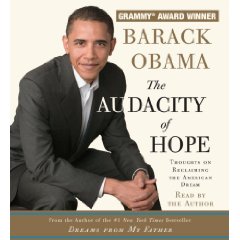
Free for All
Oddballs, Geeks, and Gangstas in the Public Library
by Don Borchert
Virgin Books, 2007. 223 pages.
Starred Review
I loved this book. Why should I need to read a book about working in a library? Haven’t I seen it all myself? Reading these pages filled me with the delighted recognition that our customers at Herndon Fortnightly Library are not the only eccentrics out there. Besides, Don Borchert showed me the funny side of the quirky situations that face library employees every day. He gave me permission to laugh about them.
For example, one afternoon I read this passage:
“Legally, they aren’t required to give us a great deal of information: a home address, a phone number, a driver’s license if they’d like to show it to us. But some people are screwed up. They will make up addresses; they will say they have no phone, no driver’s license. The less information you have on them, the less able you are to get a hold of them when the books drift overdue and cruise into lost territory.
“Some patrons put down post office boxes as their home address. This is not a happy thing, because when the patron has $750 worth of missing books it is impossible to knock on their post office box and ask them politely where the books are. At this point, they are gone. But if the DMV puts the post office box on their driver’s license, it’s good enough for us. If it is not on their driver’s license we are dubious.
” ‘I can’t get mail where I live.’
“This statement, too, makes us suspect, because as far as we know the mail goes everywhere. When we are lied to in the first tentative moments of the relationship, we know it will end in tears, accusations, and large fines.”
In the very next week, we had a potential new customer come in who gave a post office box as his address and wanted a card given to him on the spot. (Our policy is that we will mail it.) Two people discussed our policy with him for a half hour before the employees decided to walk away!
I thought it was funny — I just read about that in Free for All! Of course, I might not have found it so amusing if I had been one of the ones trying to explain our policy. The customer seemed to think that repeating his excuses for not having a street address over and over again would make us change our policy.
Perhaps I found this book so much fun because working in the generic American public library is still fairly new to me. I got my start with eight years working in a library on an American military base in Germany, which has very different clientele. Now for a year and a half, I’ve worked at two public libraries in Virginia, and the situations I have encountered seem to precisely match those described by Don Borchert in a small branch library in Southern California.
In fact, that may be half the fun. The library where the author works could almost be the exact library that my parents took me to when I was a young child, in the South Bay area of Los Angeles. Almost forty years later, it’s amusing to realize that library was so much like the one where I work now (though of course without the Internet, or even computerized checkout back in those dark ages).
He did give me a new appreciation for why so many kids hang out at the library after school:
“Four hours a day is too much for a child, too much for most adults. Even if doing a thing is fun, do you want to keep at it for four hours a day, twenty hours a week? We are adults. We are paid to be here. It is a job — one of those real jobs I had successfully avoided for years. Four hours a day for a child in the library is close to four hours of minimally supervised hell.
“When a child is dropped off for that many hours, it’s free day care, pure and simple. The library is heated in the winter, air-conditioned in the summer, there are adults in charge, and there are clean restrooms. By not thinking about it too closely, or too clearly, parents think they are doing a good turn for their children. The kids get to catch up with their friends, get a leg up on their homework, and relax after a hard day of schoolwork. And that is the flawed yet attractive theory they are going with. . . .
“But plenty does happen at the library, especially when you’re given four hours a day to think about it. You’d think a kid doing homework from 3:30 to 6:30 every day would be cutting a dazzling, high-profile swath through school, but there’s a wrinkle. We don’t make them do homework. We are not their parents. We don’t have a vested interest in their success. Not surprisingly, a lot of the kids dumped off at the library for three and four hours a day are the same kids who wind up taking summer school because they failed their subjects the first time around.
“Maybe, their disgruntled parents think, if you have to do four hours of homework a day and still don’t understand it, it’s too hard.”
If you work in a library, you need to read this book for the laughs of recognition. If you don’t work in a library, your eyes will be opened to see that it’s much more than the ultimate quiet job. Libraries do provide an interesting perspective on human nature.
I love the description of libraries Don Borchert gives to open his book:
“A library is an idea more than anything else, and it is an idea that is impossible to swallow in one or two big bites. The library is patrician, elitist, and democratic, stocking biographies of NASCAR drivers, pornography, antidemocratic literature, comic books, and the works of the great thinkers from the past two thousand years. Once a book hits the shelf, the library is loath to get rid of it no matter what outrage it causes. The only way a library will discard a book is if it is ignored. The scandalous ones do not get ignored until they are passe.
“The library offers books on every subject imaginable, in a variety of languages, and offers state-of-the-art computers with free word processing and Internet services. A mecca for scholars and students of all ages, the library is the dullest place in the world — 91 percent of the time. It also attracts the homeless, the mentally ill, occasional pedophiles, Internet junkies, unattended children down to the age of two, con artists, thieves, beggars, cultish homeschoolers, and people who are in general angry with every level of state and federal government. Most of these people decide to fill out an application and get a library card.
“This makes librarians inordinately happy. We love seeing new patrons wandering around, browsing, looking at what’s on the shelves.
“Why?
“Because there is a belief that once you begin to open books, you will become a better person. It is Pandora’s box, but in a good way. You are inching toward the promised land, page by page. And it doesn’t matter if you subscribe to this theory or not. The subscription has already been bought and paid for.
“We are all misfits, poseurs, and clowns. We are heartbroken and lonely, failures in life, criminals and frauds. Most of our successes are pleasant illusions. Through the books on the shelves, the library becomes a support group and lets us know that we are not alone. Once we realize we are not alone, we can relax, set our burdens down, and move on.”
Truly, this book shows us that as library workers, we are not alone.
Buy from Amazon.com
Find this review on the main site at:
www.sonderbooks.com/Nonfiction/free_for_all.html









